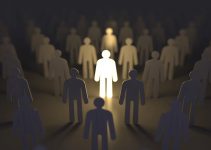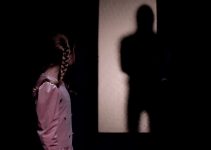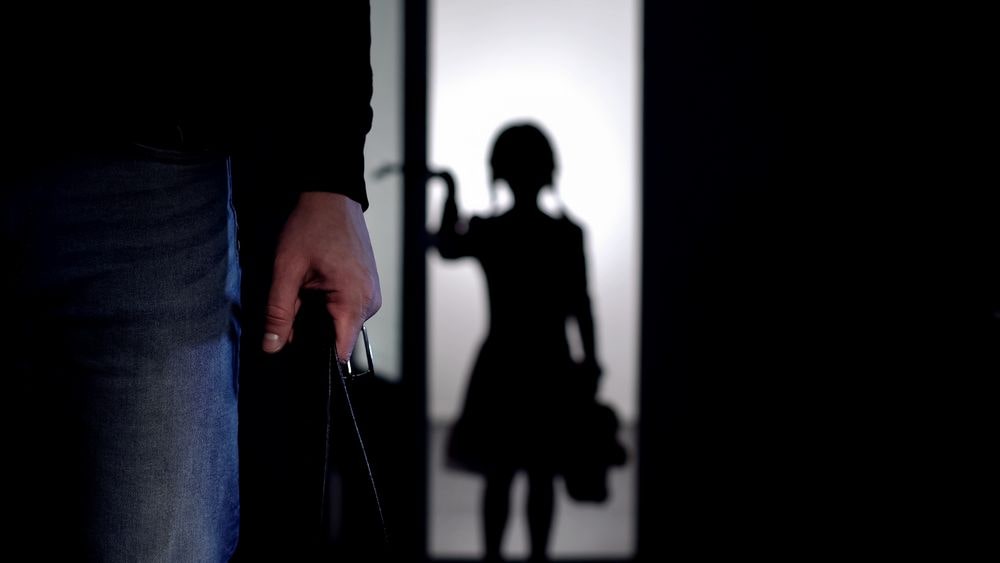
Fear of Authority
…
I have a fear of anger.
Authority is Anger
The authority figure in my life was my dad. Usually fathers represent authority in their kids’ lives but in actuality it’s whichever caretaker was the one that you thought was in charge the most.
Both mothers and fathers are authority figures to their children and they are also both nurturing and kind figures to their children. It’s just that the dads usually lean more towards being the authority and moms usually lean more toward the caretaking side, but again both are both.
Some examples of female authority figures in popular movies are Dolores Umbridge in Harry Potter and Mrs. Deardorff, the director at the Methuen orphanage in the popular Netflix series Queens Gambit.
Both of those figures are strict and stern but an authority figure doesn’t necessarily need to be that way. A well integrated authority figure is both strong (anger) and kind at the same time, but we usually tend to think of authority figures as stern and mean.
In my case my father was my authority figure and he fit the stereotypical image we have of authority which is somebody who oppresses and is feared.
He used his anger in a hostile manner instead of acting out his authority the way a “benevolent King” would, which would be to express his anger to direct and guide those below him, in a respectful manner that would result in what’s best for everybody.
Hence anger and authority being intertwined.

Authority Good or Bad?
Is Authority Good or Bad?
The answer is that it’s neither. Better questions though are, what is authority and what has my experience of authority been like?
For simplicity’s sake let’s just say that authority is any person or entity that has power over you in some way. When you’re young it’s your parents, teachers, coaches and other adults that are part of your world.
When you are an adult it’s your boss, landlord, bank manager, government, border security agent, police officers etc.
Those are the typical individuals that we tend to see as authority figures because of the obvious power or influence that they have over us.
In my case I was afraid of anger and so that meant that authority was anybody who would get angry with me, or who I thought was going to get angry with me. That could have been anybody from a neighbor to the snarling old lady who was always in a bad mood at the grocery store checkout.
In other words everybody was an authority figure to me and I hated it.
My fear of anger made it so everybody out there was an extension of my father in some way. I mentioned in other blog posts how he used to yell a lot and scare me when I was a child which is what originally created that conditioned response in me, the fear of anger.
When I’m faced with anger or potential anger, an anxious physical reaction starts to take over my body. I mostly get really tense, my stomach clenches, my breathing becomes more shallow and my solar plexus feels really tight and painful. Basically it’s the flight part of the fight or flight response.
Because of that pain I experienced due to somebody else’s anger, I learned to see anger as bad and everybody else as bad too because they all used their anger, which was hurtful to me and made me feel like I was in danger. I felt that they use that anger to manipulate me and get what they wanted out of me.
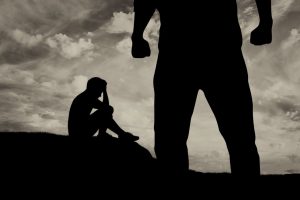
Where the Fear of Anger Originates
My Father the Wolf
Even though my father never severely abused me in the physical sense, I did experience him as if the possibility was always there and that I might be beaten up as a four-year-old by the beast that he was.
Imagine being four years old and in front of you is a large dog that’s about three times your size. It comes towards you like a predator, eyes fully dilated and dark, locked onto you showing teeth and growling that low, guttural sound that signals an attack is imminent.
You know you’re toast if that dog decides he wants to rip right through you because he’s way more powerful than you are, much bigger and stronger, has you in a corner (anywhere in the house really is a corner) and there’s nothing you can really do about it.
You can’t run away because he owns you. You can’t call for help because you don’t know how – and even if you did a part of you deep down knows that nobody would do anything about it anyway. It might even make things worse.
So you just sit there and tremble, anxiety turned all the way up to maximum and praying to God that this dog has enough self-restraint not to kill you on the spot.
Then when the dog walks away you collect yourself somewhat but never let your guard down. You always have that fight or flight turned on just a little, cortisol running rampant through your body and damaging your cells, because the emergency is never over.
You know that for the next 14 years or so (which to a four-year-old is the rest of their life) you’re going to have to find a way to deal with this monster because it’s not safe. It’s way too stressful and taxing to do nothing and so you’ll have to come up with an adaptive behavior, like avoidance or appeasement, to cope.
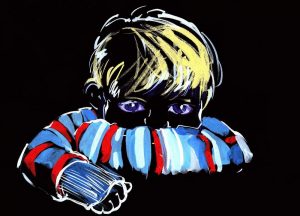
Just trying to Survive
Survival is at Stake
Every child knows deep down that their survival is at stake when it comes to their parents. If you had good parents then you’re not stressed about it one bit, but if you didn’t then that fear for your survival drove many of your behaviors, and unfortunately was responsible for the stressed experience that was your childhood.
What made my childhood even more stressful than what I had described above, is that there was no predictability to my father’s angry outbursts. It’s one thing if you know that your father is always upset when he comes home from work, or if he only gets upset if you never clean your room etc.
At least when it’s predictable you can work around that. You can avoid him when he comes home from work and you can make sure your room is always clean. Once you have that pattern down you can breathe easy for the majority of your day because you know where the danger is, and you know how to deal with it.
That wasn’t the case with my father. He seemed like he was always in a bad mood and it was just the degree of moodiness that would change. And so I had to walk on eggshells around him, and around the house in general, because I never knew when the volcano would explode.
That kept me in a steady state of anxiety which was exhausting now that I think of it. Always wondering if the dog is going to bite, always wondering if his bad mood will suddenly go to yelling and screaming and hitting tables with his fists.
And when he was in that emotional state, wondering if the next step would ever come, which was using those fists on me, and my possible annihilation.
I can look back now with my prefrontal cortex, the rational brain, and see that he would never have severely injured me or killed me. Unfortunately my prefrontal cortex is not in charge, my amygdala is and it is always sounding the alarm and telling me that my survival is at stake.

Out of Control
Unstable
I remember seeing my father in that aggressive state and to me it looked like he was out of control. That was the scary part. That he was wielding this great power of destruction and it looked like he didn’t have any control over himself anymore.
Obviously he did because I’m still here but it didn’t look or feel like that to me. It felt very irrational and explosive, like a room full of sulfur that only needed a tiny spark to ignite the entire room and spell “game over.”
We’ve all seen people do and say things that they didn’t mean because they were emotional, which is another way of saying because they were not fully in control. I worried my father would lose control and let his anger take over like a pack of wild dogs who haven’t eaten in days let loose.
In movies, the bad guy usually kills some of his own men simply because he was in a bad mood when one of them simply said the wrong thing at the wrong time. I always get a twinge of anxiety when I see scenes like this. It’s almost like a reaffirmation that my anxiety warns me about again and again, to be afraid of anger because people can do something like that villain did at any time.
This is why my coping mechanism when I was younger was to shut down, and to this day I have trouble speaking up. I have trouble using my anger in a productive and healthy way to speak up because it might piss somebody off and I might be in danger.
Again when I say using my anger I mean it in the healthy assertive way instead of a hostile, attacking type of expression. When expressed properly most people wouldn’t say that anger is anger.
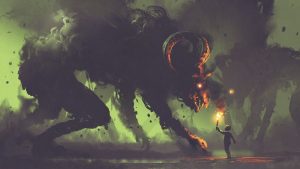
Facing Fear
So this is my dilemma.
I have this psychological pattern that was given to me by somebody else (my father) that keeps me shut down in my life and causes me to feel a lot of resentment towards others because I feel that I need to stay shut down for my own survival.
My emotional brain is always telling me that danger is out there and that standing up for myself or just expressing what I want could lead to catastrophe.
It’s exhausting
So my challenge now is to go through pain and discomfort that’s going to come up each and every time I decide to assert myself. That could look like me telling the salesclerk they made a mistake on my bill, expressing my political opinion to people I know will hate me after they know what it is, or confronting a very hostile boss.
It’s going to hurt but it’s the only way forward. My anxiety and resentment I experience now at not being myself is becoming a greater pain and the fear of speaking out, confronting anger and being myself.
– FOA
*** If you’re going through something similar then I hope this helped. If you are, I invite you to share it with me and everybody else who visits here by typing it up and emailing it over. I’ll post it on the blog which would benefit everyone; you for writing it up – which gets you in touch with your unconscious more and with this issue of yours specifically – and us for relating with it and perhaps seeing our own issue from a different angle.
...

SUBMIT A POST!
To submit a post, click here. Post your experience with your fear of anger (FOA).
The best way to help yourself and others get over your FOA is to share and connect in as many ways as you can.
